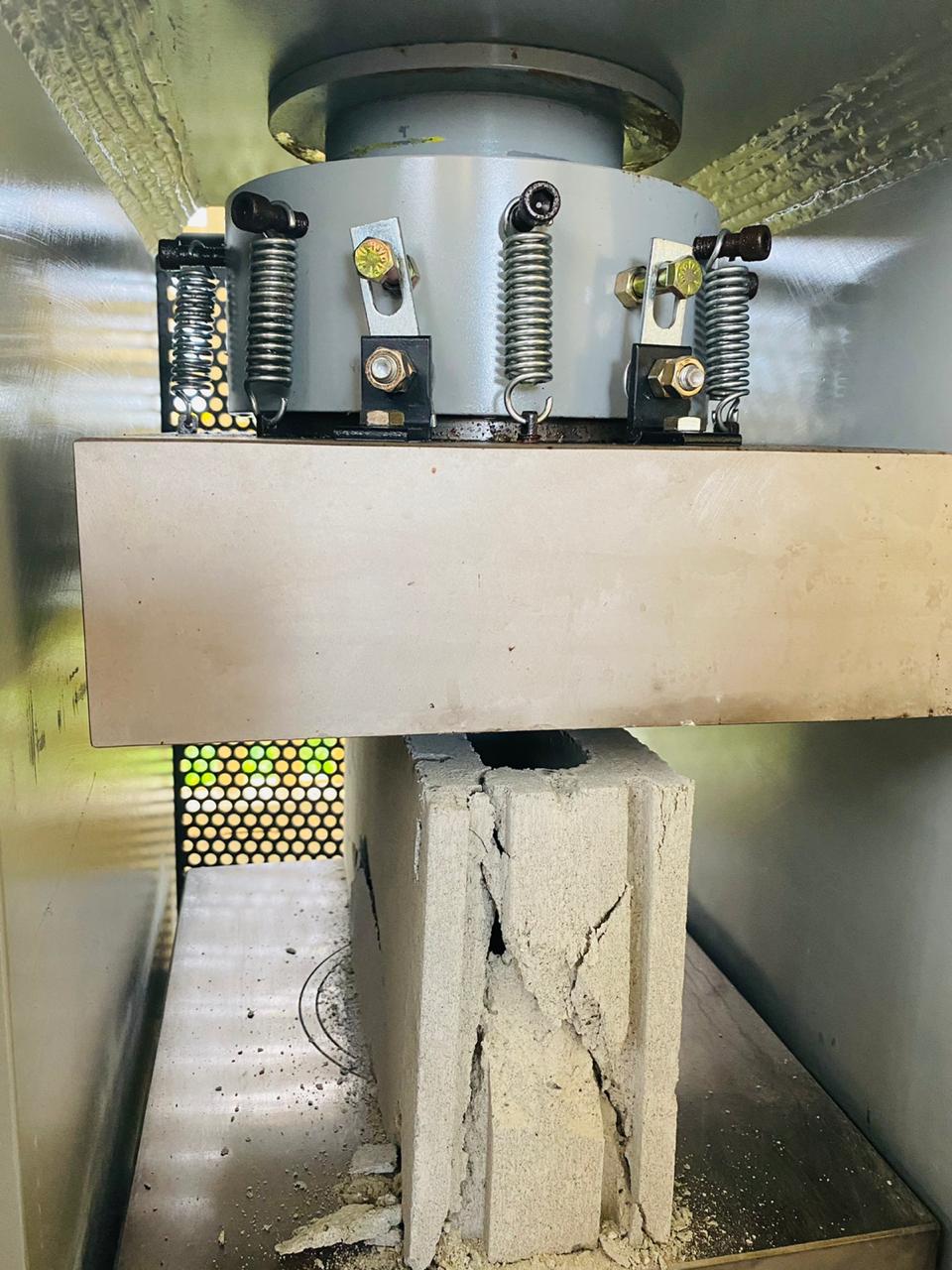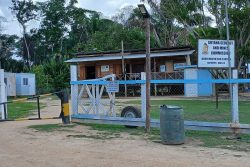The Guyana National Bureau of Standards (GNBS) says it is now fully capable of testing the compressive strength of locally manufactured concrete hollow blocks while announcing that plans are being made to provide certification.
This is according to a press release yesterday from the bureau of standards which said that its new testing capability will help to determine whether blocks available for construction are conforming to the requirements of the Guyana Standard Specification for Load Bearing masonry Concrete units (GYS 215:2003).
According to the release, hollow blocks of common sizes including inches 3, 4 and 6 can be tested which it said is now possible after its Industrial Metrology and Testing Services Department acquired the requisite training, equipment, and facility.
Against this background, the GNBS said it is encouraging local manufacturers, domestic block makers, contractors, and homeowners to submit blocks to its testing laboratory for initial or routine testing; stating that the results provided would be an “accurate” indication of the quality of blocks being manufactured and used during construction, and that a certificate would be provided for tests conducted.
The release said that importantly, the sample size of blocks to be tested would range from one to five blocks; depending on individual circumstances related to batch size or purpose and that stakeholders are encouraged to contact the GNBS to ascertain the sample size needed for testing.
Meanwhile, under its Product Certification Scheme, the GNBS said it is looking to expand its service towards the certification of concrete hollow blocks which it said will include batch certification.
“These Certification and Testing services will be provided at very affordable costs, the release said.
According to the bureau of standards, for many years homeowners and contractors have expressed concerns about the poor quality of concrete hollow blocks provided by some makers and anticipates that its new testing and certification services will help to concretely address such quality concerns and reduce complaints.
“Ultimately, the increased testing and certification of the blocks is a significant step towards assuring stakeholders of the integrity of new concrete structures,” the release said; even as it adds that the national standard requires that an individual unit (block) must have compressive strength not less than 5.5 Megapascals (Mpa) (798 PSI), or the average of three units must not be less than 7 Mpa (1015 PSI).









